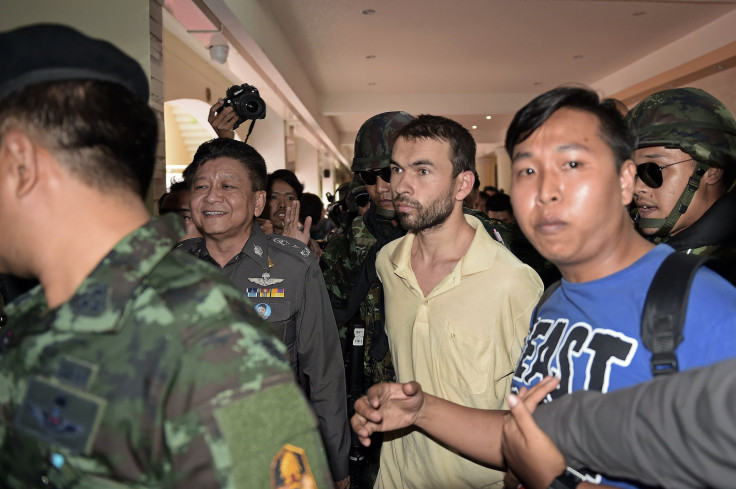Bangkok Bombing Update: Thai Police Claim First Arrested Suspect Is Shrine Bomber

Thailand police said Saturday that a foreigner, the first arrested suspect in last month’s deadly attack in Bangkok, was the same man in a yellow T-shirt seen on CCTV footage placing a bag at the Erawan shrine moments before the explosion on Aug. 17. Thai police have so far detained eight people in connection with the blast that left 20 dead.
According to Thai police spokesman Prawut Thavornsiri, investigators confirmed that the man, identified as Adem Karadag, was the bomber. “He accepted the crime,” he told reporters, according to the Guardian. “All the information we have leads back to him,” he said.
The announcement, however, is considered a confusing twist to the investigation as authorities earlier said that neither of the first two men detained over the blast were likely to be the main suspect, Agence France-Presse (AFP) reported.
Prawut said that Karadag, whose nationality is still unconfirmed, placed the bomb at the shrine and called a motorbike taxi to flee the scene. He then went to the nearby Lumpini Park and changed his clothes in a restroom. According to Prawut, Karadag now faces up to eight charges, including premeditated murder.
Karadag’s lawyer Chuchart Kanphai earlier claimed that his client was not in the country at the time of the attack. He also said that rumors of Karadag’s confession to the crime were dubious, AFP reported.
While the motive for the bombing was still unknown, Thai police recently linked the blast to China’s Uighur minority. National police chief Somyot Poompanmoung reportedly said that the bombing was carried out by a people smuggling network that “moved Uighurs from one place to another.”
Somyot’s comments came after weeks of speculation by local media that the blast was in retaliation to Thailand’s deportation of more than 100 Uighurs -- a Turkic-speaking Muslim minority from China’s Xinjiang province -- in July.
At the time of Karadag’s arrest late last month, Thai police claimed to have seized bomb-making equipment and dozens of fake Turkish passports. Karadag’s lawyer earlier said that his client was born in Xinjiang’s capital, Urumqi, but moved to Turkey in 2004, AFP reported.
© Copyright IBTimes 2025. All rights reserved.






















